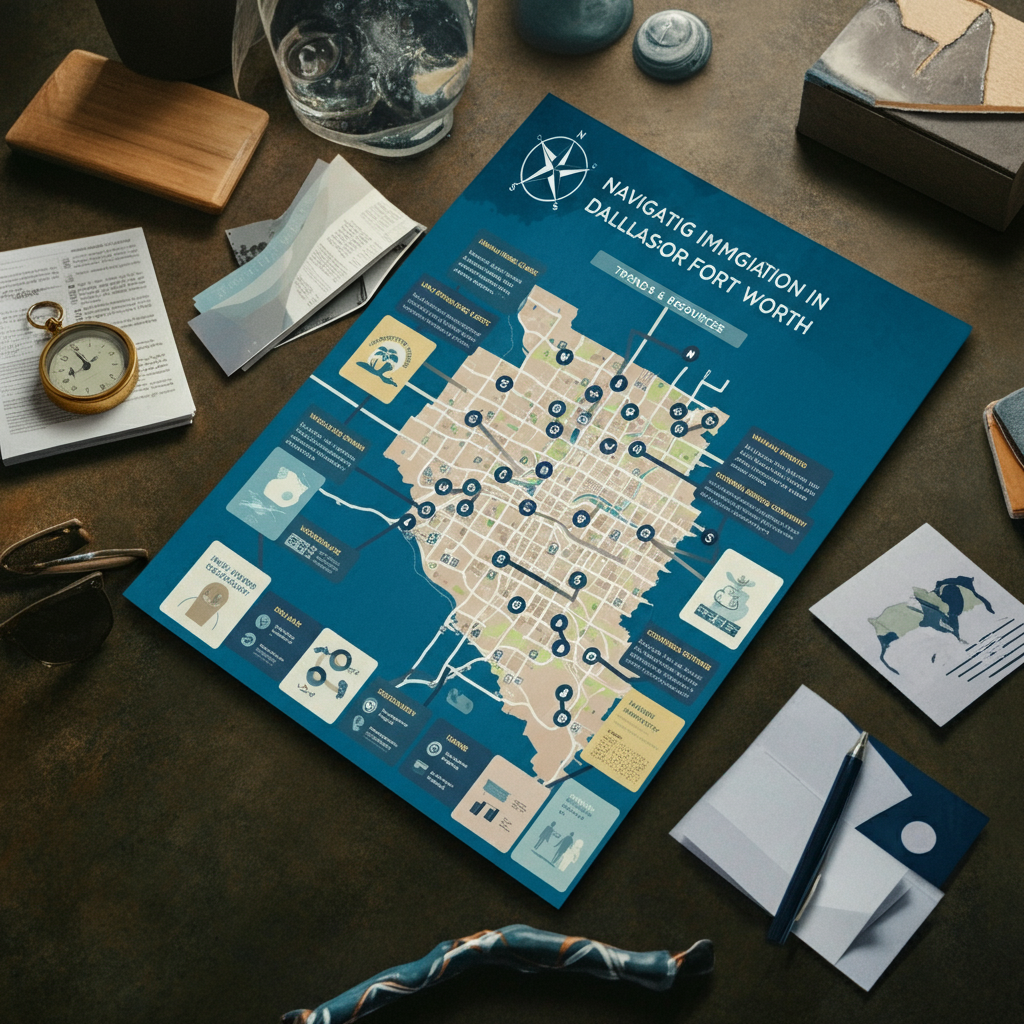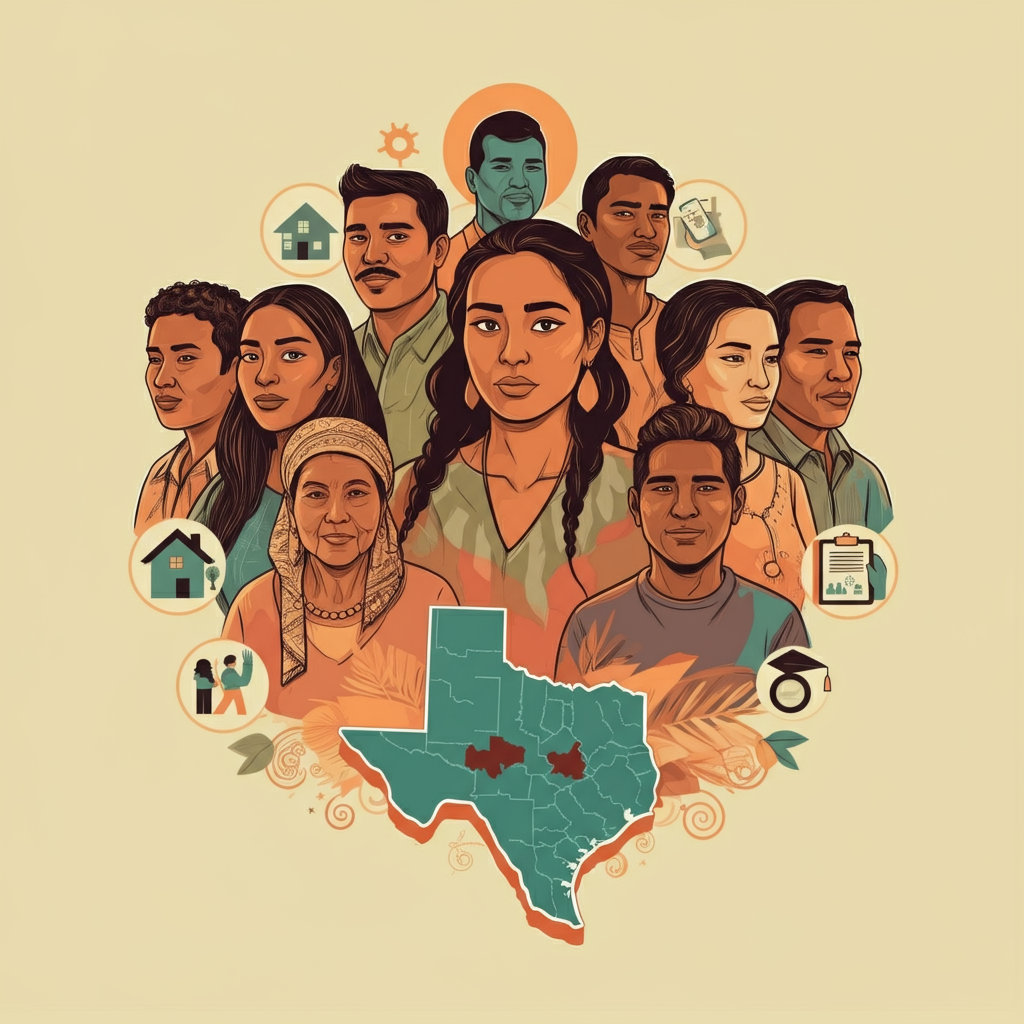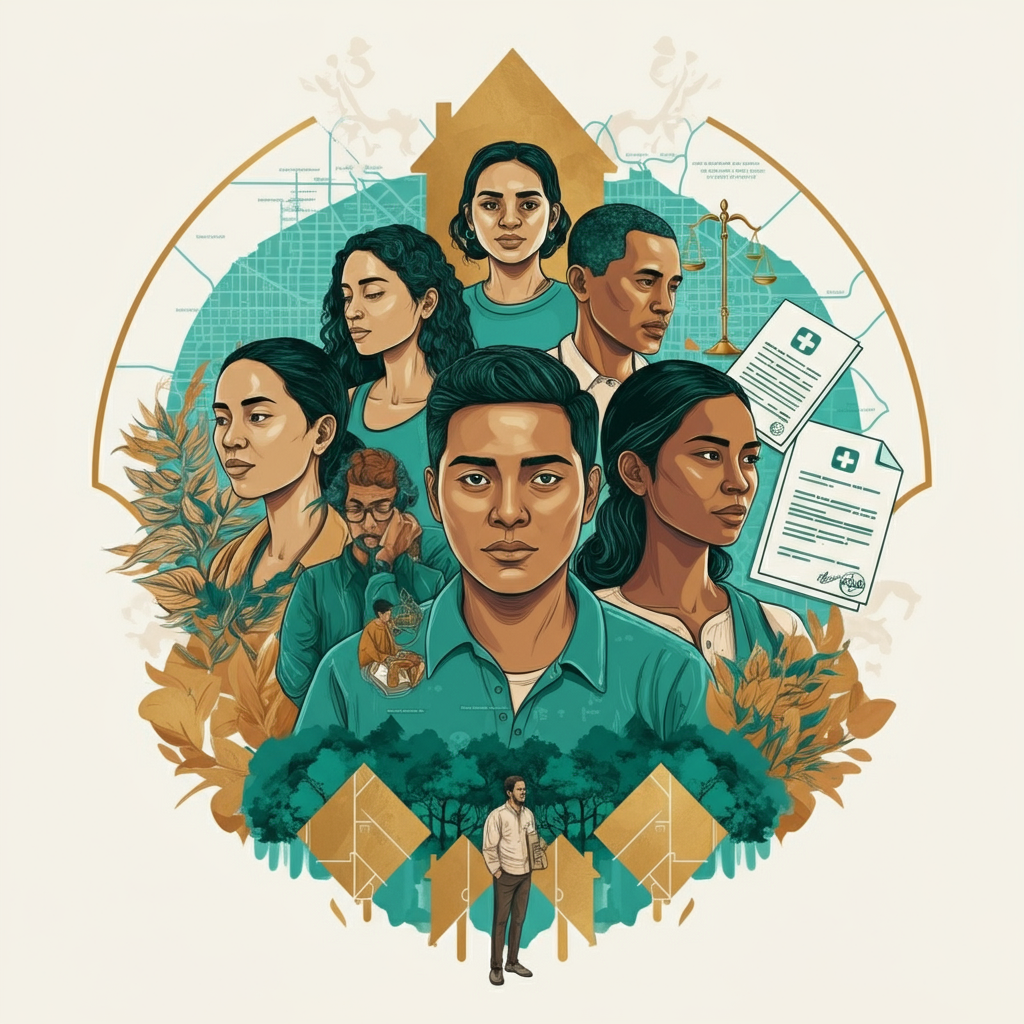The Dallas-Fort Worth metroplex is a vibrant, growing hub, shaped significantly by its diverse immigrant communities. As people from around the world choose to make North Texas their home, the local immigration landscape is constantly changing. Understanding the current trends, challenges, and opportunities is essential for anyone navigating the U.S. immigration system in this region.
This article will explore the current state of immigration in DFW. We will cover recent demographic shifts, common legal hurdles, and the valuable local resources available to help you on your journey.
Current Immigration Trends in North Texas
The DFW area continues to be a primary destination for immigrants, both from within the U.S. and from abroad. Recent data shows a significant increase in the foreign-born population, contributing to the region’s economic and cultural dynamism. This growth comes from various sources, including employment-based visas, family petitions, and humanitarian pathways like asylum.
Federal agencies such as the Department of Homeland Security (DHS) and U.S. Immigration and Customs Enforcement (ICE) play a major role in overseeing these processes. Their policies and enforcement priorities directly impact immigrants in the DFW area, from visa application processing times to enforcement actions. Staying informed about shifts in federal policy is a critical part of managing an immigration case.
The local economy, particularly in sectors like technology, construction, and healthcare, relies heavily on immigrant labor. This creates opportunities for skilled workers but also highlights the complexities of navigating work visas and employment authorization.
Common Challenges Immigrants Face in DFW
While DFW offers many opportunities, immigrants often encounter significant obstacles. The U.S. immigration system is notoriously complex, and navigating it without knowledgeable guidance can lead to delays, denials, and serious legal consequences.
Legal and Procedural Hurdles
One of the biggest challenges is the sheer complexity of immigration law. Forms are lengthy, evidence requirements are strict, and deadlines are unforgiving. A small mistake can jeopardize an entire case. Key challenges include:
- Long Processing Times: Many applications, from green cards to citizenship, face extensive backlogs, leaving families and individuals in a state of uncertainty for years.
- Changing Policies: Immigration laws and regulations can change with little notice, making it difficult for applicants to keep up with new requirements.
- The Threat of Removal: For those without legal status or who have fallen out of status, the fear of deportation is constant. Building a strong Deportation defense requires immediate and experienced legal action.
Access to Resources
Finding trustworthy help is another major hurdle. Many immigrants, especially those new to the area or with language barriers, may not know where to turn for assistance. This can make them vulnerable to scams or unqualified advice that can harm their case. Accessing healthcare, education, and stable employment can also be difficult without the proper documentation and support networks.
Free Local Resources for Immigrants in DFW
Fortunately, Dallas-Fort Worth has a robust network of organizations dedicated to supporting immigrants. These groups offer a wide range of free or low-cost services, from legal aid to community integration programs.
Legal Aid and Support
- Human Rights Initiative of North Texas (HRI): HRI provides free legal services to asylum seekers, victims of violence, and other vulnerable immigrant populations. They focus on humanitarian-based immigration claims. Visit their website at hrionline.org.
- Catholic Charities Dallas (CCD): The Immigration and Legal Services program at CCD offers low-cost legal assistance for a variety of immigration cases, including family-based petitions, citizenship, and DACA renewals. They serve individuals regardless of their faith. Learn more at ccdallas.org/services/immigration-legal-services/.
- Justice for Our Neighbors DFW (JFON): JFON provides free and affordable immigration legal services to low-income immigrants and refugees. They operate clinics in several locations across the metroplex. Find clinic information at jfondfw.org.
Community and Integration Support
- Refugee Services of Texas (RST): With an office in Dallas, RST offers comprehensive services to help refugees, asylees, and other displaced persons integrate into their new communities. This includes job placement, social adjustment services, and youth programs. Explore their work at rstx.org.
- RAICES Texas: While providing legal services, RAICES also engages in strong advocacy and offers social programs to support immigrant and refugee families across Texas, with a significant presence in DFW. Their website is raicestexas.org.
While these organizations provide invaluable support, their resources are often limited, and they may not be able to take on every case. For complex situations, consulting with an experienced Immigration Lawyer is often the most effective path forward.
Actionable Advice for DFW Immigrants
Navigating your immigration journey in Dallas-Fort Worth can feel overwhelming, but you can take proactive steps to protect your rights and work toward your goals.
- Stay Informed: Keep up with changes in immigration policy through reliable sources. Follow news from the official DHS and ICE websites, and consider subscribing to updates from reputable legal aid organizations.
- Organize Your Documents: Keep all your immigration documents, personal records, and correspondence with government agencies in a safe and organized place. Make digital and physical copies of everything.
- Seek Qualified Legal Help: Do not rely on notarios or unqualified consultants. If you have a legal question or need to file an application, consult with a licensed immigration attorney or a DOJ-accredited representative at one of the nonprofit organizations listed above.
- Connect with Your Community: Build a support network. Engage with community centers, cultural groups, and faith-based organizations. These connections can provide emotional support, practical advice, and a sense of belonging.
The immigration landscape in DFW is full of both challenges and opportunities. By arming yourself with knowledge, seeking out credible resources, and taking deliberate steps, you can navigate the system more effectively and build a successful future in North Texas.





